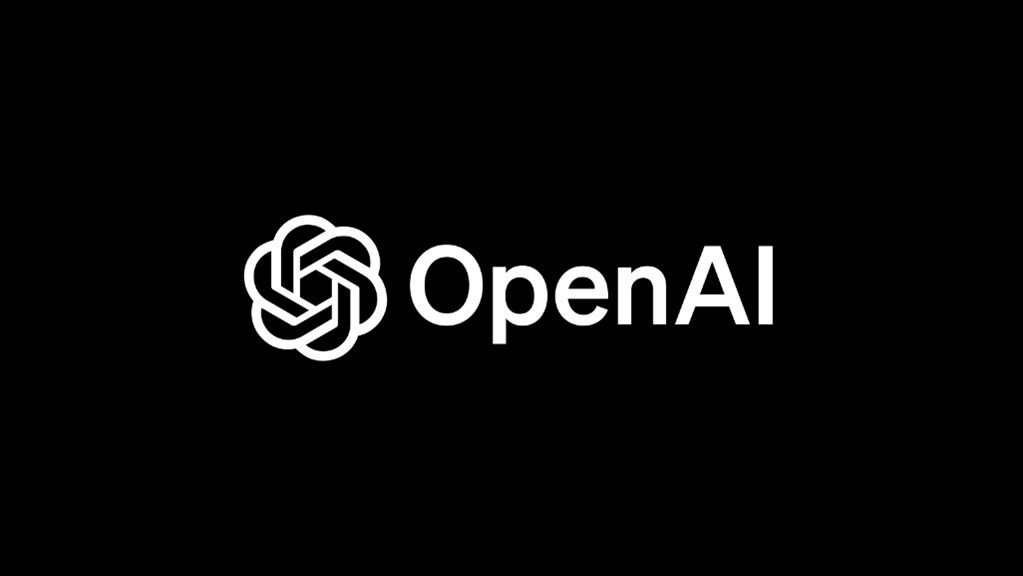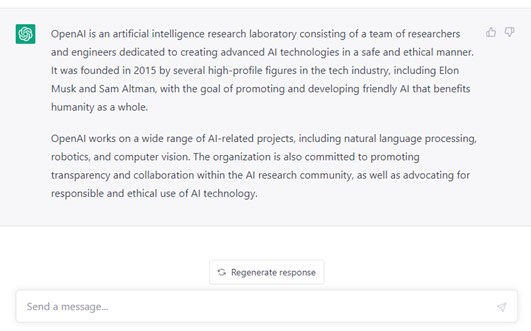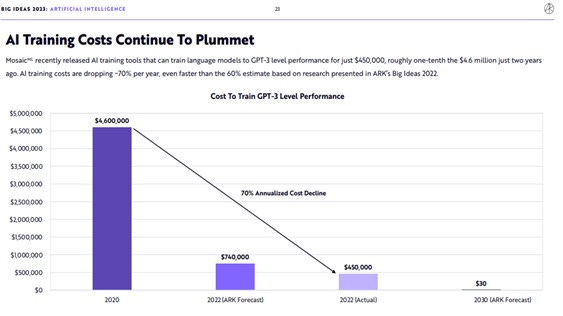AI enters our everyday: reflections from a writer
article | artificial intelligence
*You can check out my latest series about a nomadic traveller under the must reads section—poetry, fiction and article sections are available on my homepage.
Swimming against the tidal waves of technological advancement feels regressive.
Because like the .com boom of the mid 1990s, artificial intelligence will pour into the lives of everyday people like a tsunami—experts predict AI will be unstoppable, some think it already is. Let’s take a closer look at what is going on in this buzz industry of machine learning and robots.
To look forward it’s important to understand where we stand in the digital age. Tech products like smartphones, laptops, and cameras are here, supported by apps and features that receive software updates as we sleep. Tech devices now integrate with one another, creating an all-encompassing and all-consuming user experience. And us too busy human beings, we subscribe to both aspects—whether we wish to or not, it feels easier to subscribe to technology. In comparison to what we know about tech today, artificial intelligence advancements make the smartphone seem as slow and plodding as dial-up internet. What chance do we have in denying the new wave of machine learning?
Everyday people, everyday lives
When it comes to technology like smartphones, most individuals share rituals and habits in common. We wake each morning to a faster, slicker, more engaging device that soon after consciousness, steals our attention. And we go to it before a partner, hydration, shower—a rise with the sun or thought about how best to prepare for the day ahead. The influence big tech companies have on our daily lives can be described in extremes that range from: effortlessly accommodating to beyond invasive. Soon after waking, an empty mind begins fills like a mug of coffee with mindless decision making. Tap, tap, tap.
Constant online stimulation makes it hard to find mental space. Watch people on your next commute somewhere, see where they are looking. Is it time spent for the better or time spent for the worse? Either way, we accommodate our digital intrusions with the willingness of an addict. Computer scientists have found engagement sweet spots (time as commodity) that developers use to get us swiping and clicking and watching. User retention, data analysts and marketeer—among others, call it. The minds attention shrinks like a deflating balloon.
Once normal behaviour is uncommon
To live in the medium: a book before bed, conversation about the birds on a park bench with a stranger, Sunday stroll through a park—free time activities can feel lowlife in comparison to the adrenaline rush of your latest device—we understand this now. But catchy soundbites and a relatable one liner online are not real life. Vloggers are not our friends nor enemy. Memes are designed only to go viral. Our attention and pleasure-seeking habits are increasingly being controlled by devices. And now the machine that is artificial intelligence enters our everyday lives. This reality will redefine how we work and exist as a society, making current data-related software and applications feel as dated as floppy disks, redundant as cassette tapes.
An automated machine is more productive than a human being. But what does this mean, and where will this lead us?
Tomorrow lives for today
Don’t panic, quite yet. It’s good to remember that technology has been an undeniable net positive for humanity. The digital age has dramatically accelerated human advancement from a knowledge-based perspective through the open sourcing of information. Advancements in precision-based medicine, such as DNA sequencing, is just one example of the positive impact of tech and AI advancement. Artificial intelligence is being used to develop cures and reduce workloads through medical assistance and procedural automation. Surgeons cut cleaner in the operating room with tech assistance. Doctors send more time with patients and researchers develop better medicines at increased speed with more health accuracy. This is why investment in AI based healthcare is on the up—a good thing, right?
This is just the tip of the iceberg in a world with countless industries, subdivisions, fields, titles, roles, professions, skills. But one thing that seems apparent is the need to develop a bilingual job skillset, one that incorporates AI technology. Ask the right medical and science expert and they believe that AI and the algorithms will only accelerate the successful treatment of complex but curable diseases, ultimately saving lives at lower cost—all of that is a huge big deal.
Spend now, think later
Tech startup venture capitalists invest in companies that create use daily apps and products that make for easier living. But the reality of device reliance only raises further questions like this one: does the convenience of instant purchases via your phone make saving for big-ticket items like a mortgage or car even harder? Purchases require less thought and this can increase senseless spending—in the west this is consensus. The cost of instant consumption is worth considering in a capitalist economy that currently overspends despite hiking interests. Especially in a current economic climate where pockets are light and the debt ceiling in the west’s richest country continues to be raised, despite rising interest rates. People want the latest tech that makes things like ecommerce, communication, digital storage easier. But at what cost?
5 tech products people use daily to make life simpler:
- Digital e-wallets (less transaction points compared to traditional banks)
- Chat & messenger (instant thought share functionality)
- Cloud Storage (automated filing system)
- Navigation tools (lost is found, speed is efficiency)
- Wellness apps (track health goals)
What is AI?
Advanced technology like AI is disrupting the already disruptive tech industry. Because we live in an information overload generation and generative language-based software is here (explanation below). Yes, there’s a new monster in town, one that goes by the name of artificial intelligence—and behind the scenes— AI has been putting in some serious work.
Artificial Intelligence (AI) is a computer science field that creates intelligent machines to perform complex tasks that often require human-level intelligence. This includes understanding language, recognizing images, learning from experience, and making human-like decisions. It's a fascinating and powerful technology that terrifies and astounds experts who use it in equal measure—let alone average beings such as human adopters (myself included).
2 AI key categories
- Rule-based AI – Uses a set of pre-defined rules to make decisions based on the input it receives. Often used in expert systems and decision-making applications.
- Machine learning-based AI – Uses statistical algorithms to learn from big data sets and improve performance over time. It's applied in areas like image recognition and language processing.
Tech giants like Microsoft, Tesla, and Google are investing heavily in developing and absorbing AI labs, schools, companies. And it's no surprise in a capitalist society to see corporate tech giants like Meta pivot from VR and accelerate research in the AI sector. It seems the big guns are swallowing up the competition or making room at the table for the new wave in technology. The next tech revolution is AI and it is moving at breakneck speed.
First or nowhere
These days, the blood-money stink of a new gold rush drifts across Silicon Valley like campfire smoke. The greed is real and will lead to many redundancies. The now big tech funded AI invasion will bleed into every imaginable space—take versus give is an eventual discussion point with profound implications n one fully understands. All of this raises questions about the cost to humanity, a widening economical divide, and the impact on job industries. Will creatives be smoked out by machine learning in an instance as products like word tool ChatGPT and design tool DALL-E enter the workplace?
Open AI closes its doors to the public
Artificial intelligence is happening now, not tomorrow. Sam Altman, former President of Y-Combinator, heads Open AI: a team of researchers, engineers, and project managers that have built the fastest-growing consumer app in history: ChatGPT. A language-based AI application.
GPT's sudden rise provides measurable data on the explosive growth of tech apps and AI. Giant datasets and algorithms are already programming machines to instruct and direct us. Before being realised, AI has become part of our everyday lives.
Race to 100 million users:
- ChatGPT – 2 months
- TikTok – 9 months
- Instagram – 2.5 years
- Facebook – 4.5 years
- Twitter – 5 years
As AI advances, Microsoft and other OG Silicon Valley giants are investing heavily. Open AI is now embedded in the big tech monopoly—and there is more than a whiff of irony in Open AI and the once non-profit ideation behind the name. it didn’t take long for the company to go private. Once created by tech leaders to better understand and control evolving AI like ChatGPT, Open AI is now a private and funded by Microsoft. Thos once involved in Open AI at inception are now worried enough to call for pause.
“Open AI has become a top research organization in AI, prioritizing both developing advanced technology and responsible ethical use.”
Open AI
The expense of cheaper AI production
As the cost of AI tools decreases rapidly, leaders like Elon Musk are stepping away from evolving company ideals, citing concern about singular power and sinister intentions. Microsoft made Open AI an offer they couldn't refuse: a ten billion purchase that bought exclusive access to data, software, codes, and products, along with 75% profits until the initial investment is recouped. Soon after purchase, GPT-4, an upgraded model with a subscription option was soon released. DALL-E 2 is also here.
And what about AI development? Costs are decreasing at profound rates sped up with soaring user adoption rates. And according to asset manager ARK Invest—leaders in disruptive innovation, the cost to produce artificial intelligence is going to plummet harder than the depleting body counts at giant tech firms currently switching to AI for automating, processing, writing, designing, coding…the list of job roles grows with each advancement.
How should one feel about all this AI advancement: enlightened, redundant, afraid? With creatives and language-based generative products like GPT and DALL-E—all the feelings are on the table. And for now, at least, these feels are exclusive to humans and animals.
GPT searches were first seen as a fun activity for most people. Commands like: write a song in the style of X or an essay on the topic of Y—the results jaw dropped millions of people. The instantaneous and entertaining return of fully formed information was beyond impressive: the AI machine can imitate the human tone of voice and replicate language on demand with remarkable accuracy. But as GPT's capabilities became more apparent, concerns began to arise. It was discovered that GPT could pass school exams and keep up with human lawyers studying for the bar exam. Consequently, GPT users started asking more complex and nuanced questions, only to discover that AI had answers that could enhance their own performance and productivity.
In fiction, storytellers can now input specific themes and plot twists into GPT for genres like fantasy, crime, or romance, or add biblical undertones in the style of a writer like say, John Steinbeck. GPT can inject novel romance and provide a desired ending that would satisfy diehard fans of multiple genres. GPT can then refine, edit and further research on prompt until the ‘writer’ is satisfied they have the story they wanted. GPT-4s capabilities to inspire and replace writers is more than impressive—it’s revolutionary, and scary. But this reality raises concerns that AI's creative abilities may soon surpass human limitations, disrupting industries like banking, science, and education. This is particularly problematic, as AI's seemingly infinite memory gives it a significant advantage over mere mortals.
“In 20 years following the internet space, we cannot recall a faster ramp in a consumer internet app."
Reuters News Agency
A DALL-E 2 image prompted on keywords ‘AI’ & ‘Picasso’
Good time to be
While concerns exist regarding the long-term productivity and potential harm of AI, there has never been a better time to be alive, especially when it comes to longevity. Open AI's rise in the AI space is moving fast, like an Ali jab or salacious gossip. And the growing suspicion around neural networks is understandable. Where does it all lead, and will there be a knockout blow to humanity at the end of it?
About the singularity
The numbers around employment predictions regarding AI replacing white collar workers are increasing. This is a cause for concern among AI intellectuals on the front line of machine learning. As AI advances at an unprecedented pace, so do the pros and cons, each as enlightening and terrifying as the other.
Pros:
Increased efficiency
Improved decision-making
Enhanced problem-solving abilities
Cons:
Lack of empathy
Potential for misuse
Loss of jobs
Open AI's GPT evolution is multiple and has only been available online for several months. AI companies like UI Path are just beginning to report positive financial growth. Despite this, there are already calls to shut down AI, with concerns raised by government officials over data and job security. Italy has banned certain AI bot software from being used. However, user promiscuity remains overwhelmingly welcomed in the modern world, with open-minded users enjoying the tool that enhance their everyday life, even if it may make their jobs redundant, even if one day the machine may decide to come for our jobs, or maybe enlighten us all.













David -- A first-time lurker here. I recently wrote about AI (big deal, it seems everyone is doing it). I wish I had read this first. It was cogent and balanced. I will be back. One bit of perspective I like to share with folks. The autopilot for flying (very early AI) has been with us since 1914. What makes humans so special is our abiilty to adapt. I genuinely believe that all of the AI that has entered our lives over the last century was either set aside as irrelevant or simply accepted and join a comfortable stable in our heads as "not really AI". I believe making tools and understanding our world is one of our destinies.
I am sure, as a poet, that I will never forget the chilling moment when I overheard in the pub that you can "get a poem" from ChatGPT. "We got one for our Dad's 60th! It was amazing and he loved it!" I froze with my beer glass only halfway to my lips.
As commissioned poetry is one of my revenue streams, I went home and wrote about everything I offer that AI cannot. This now needs to be spelled out in my marketing description. I am horrified, but also hopeful that people will start to know that they want "life, heart and soul" over "efficiency" in their gift-giving at least and hopefully in their lives. Thx for this article which anwers a lot more than I had dared to ask.